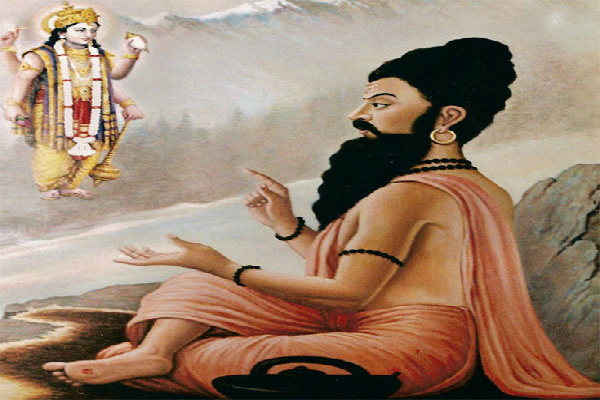“Brahma Vani”
Abhinit Kumar @ EW News:
In a profound exchange between the curious seeker, Āartabhāga and the Yogishwar Yagyavalkya, the realms of existence, life, and death are unravelled. The conversation, steeped in the rich tapestry of ancient Indian philosophy, delves into the nature of the cosmos and the essence of the human experience.
Āartabhāga, inquisitive about the cosmic order, asks, “Maharishi! How many planets and celestial entities exist, and what are these celestial bodies called?” Yagyavalkya responds with a profound simplicity, revealing that there are eight planets and eight corresponding celestial entities. He elucidates, “The ‘Prāṇa’ is a planet, and ‘Apāna’ is its celestial counterpart. ‘Vāak (voice)’ is a planet, and ‘Nāma (name)’ is its celestial counterpart. Likewise, ‘Rasana’ corresponds to ‘Rasa,’ ‘Netra’ to ‘Rūpa,’ ‘Śrotra’ to ‘Śabda,’ ‘Mana’ to ‘Kāma,’ ‘Hasta’ to ‘Karma,’ and ‘Tvachā (skin)’ to ‘Sparśha (touch).’ These eight planets and their celestial counterparts complement each other, as each has its unique role in the cosmic dance.”
The dialogue takes an intriguing turn as Ārtabhāga questions the significance of life and death, particularly in the context of the divine. “In this creation, everything is eventually consumed by death. Which deity, then, feasts upon mortality?” Yogishwar Yagyavalkya, with sagely calmness, replies, “Agni, the fire, symbolizes death and consumes all. It is the eater of the waters, representing the essential nature of mortality. Understanding this truth leads to victory over death.”
Seeking clarity on the departure of the soul at the moment of death, Ārtabhāga inquires, “What elements leave the physical body at the time of death?” Yogishwar Yagyavalkya enlightens him, “The life force (‘Prāṇa’) does not leave the body; rather, the ‘Āatma’ departs, leaving the life force within. The remaining life force within the body draws the air, causing the body to swell.”
The conversation takes a metaphysical turn as Ārtabhāga ponders, “Even after death, what does not leave the individual?” Yogishwar Yagyavalkya answers with profound insight, “The name (‘Nāma’) does not leave the person. It remains entwined with the virtuous and sinful deeds, perpetuating the individual’s legacy.”
As the dialogue concludes, Ārtabhāga seeks to understand where the departed soul resides. Yogishwar Yagyavalkya, acknowledging the gravity of the question, suggests moving away from the public forum for a more intimate exploration of the topic. After a contemplative discussion in seclusion, they return to the assembly, having delved into the intricacies of life, death, and the cosmic continuum.
This philosophical exchange between seeker and sage serves as a timeless exploration of the fundamental questions that have intrigued humanity for centuries, shedding light on the enigmatic journey from life to death and beyond.


